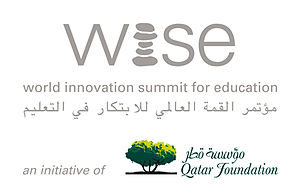
There isn’t a Nobel Prize for education.
But this month has seen the launch of an award that would like to have such a similar international status.
The inaugural World Innovation Summit for Education (WISE) Prize was announced in Doha, Qatar, with the $500,000 (£310,000) award being given to Sir Fazle Hasan Abed, whose work has brought education to millions of children in impoverished families.
Sir Fazle, the first education “laureate”, has worked across decades and continents to help communities to escape the quicksand of poverty and to gain skills and self-reliance.
Created in Bangladesh in 1972, his Brac project – formerly the Bangladesh Rural Advancement Committee – is now claimed as the biggest non-governmental organisation in the world.
An estimated 10 million primary pupils have been taught in schools set up by Brac across 10 countries, in such tough territories as South Sudan and Afghanistan.
It’s a vast operation, running more schools in Bangladesh than the entire English school system, and it is claimed to be the “largest private, secular education system in the world”.
Equal chances
Working with the poorest, most disadvantaged rural communities, often blighted with conflict, exploitation and disease, this is the raw edge of education, with one-room classrooms and basic skills.
But speaking after the award, Sir Fazle says that the greatest challenge for global education applies as much to the more affluent countries as to the poorest. And that big problem, he says, is inequity, the stubborn link between family income and educational outcome.
“A child born in a poor household has less chance of going to university than a child born in a wealthy household, in almost every society.
“So how do we remove this inequity? Every child should have the same opportunity.”
The Brac project works to alleviate poverty on a broad range of fronts – from micro-credit to health schemes – but he says that education is becoming ever more important.
“It’s so important for our survival, our progress, that every country wants to put more resources into education.”
This isn’t simply about economic progress, as he links education and literacy to the building of self-worth and self-help for individuals and communities. It provides the key to understanding “the power structure and how to change it”.
Life changing
His own commitment to development stemmed from the life-changing experience of the cyclone that hit Bangladesh in 1970. It turned an accountant into an activist.
Read more . . .
Bookmark this page for “education and literacy” and check back regularly as these articles update on a very frequent basis. The view is set to “news”. Try clicking on “video” and “2” for more articles.







